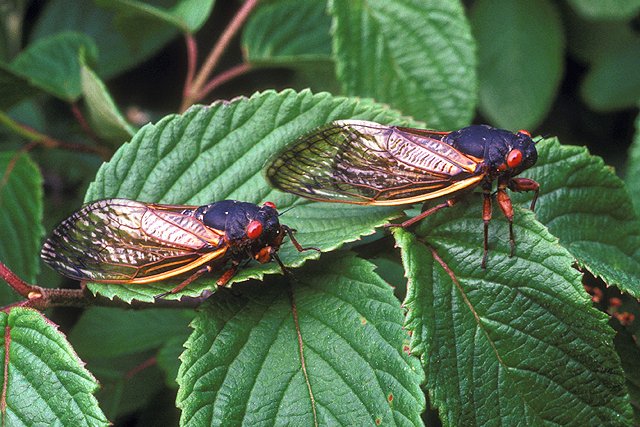
April 17, 2016
 Source/U.S. Department of Agriculture
Source/U.S. Department of Agriculture
Adults of the species M. septendecim live for 17 years underground, then emerge for just a few weeks to mate.
Brood V is coming. They have waited underground for 17 years. And when the emergence happens, there will be nothing that can stop it.
This isn't the plot of a new apocalyptic sci-fi flick. Certain species of cicada only emerge from the ground every 17 years, and soon it will be time for one group, known as Brood V, to makes its very loud presence known in southwest Pennsylvania and parts of five other states.
Depending on your perspective, the emergence of Brood V will either be a fantastic chance to marvel at the strangeness of nature or a huge pain in the neck. Their buzzy mating cry may sound to some like a glorious chorus, and to others like a million insect-sized jackhammers going off at the same time.
No one loves these love-crazed insects more than the folks over at Cicada Mania, who have all the information you need about cicadas and a running tally of local sightings. (They even have a blog post about what to do if you're afraid cicadas will ruin your wedding day, which includes the advice to use bagpipes to drown out the noise.)
The website predicts that the brood will break to the surface in May, but possibly earlier if the weather is warm. The counties that will be affected in Pennsylvania are Allegheny, Fayette, Green, Washington and Westmoreland.
The insects will also spread their lovin' around large parts of Ohio and West Virginia and a few areas in western Maryland and northwest Virginia. Cleveland really turned up the creepiness factor times ten when the city's parks department posted this ominous Instagram:
The U.S. Department of Agriculture warns homeowners that the cicadas can damage trees by laying eggs in the tips of branches. You can use insect barrier tape to protect your trees, but don't use pesticides. It won't work against a brood of such a large size anyway, and could hurt pollinating bees.
The insects are otherwise harmless, as adult cicadas don't eat anything while they're above ground — they focus on absolutely nothing but mating for four to six weeks until they die.
What a life.